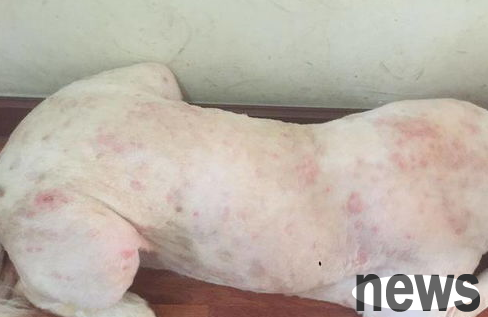Do you need to drive out six kinds of parasites when raising a healthy dog? Come and have a look
Extra attention should be paid to deworming dogs. The first thing to note is that since the drugs used for deworming dogs are both effective and safe, the owner does not have to worry about the serious side effects of deworming.
Generally speaking, there are the following types of digestive parasites common in dogs:
1. Nematodes, including roundworms, pinworms, whipworms, hookworms, etc.
2. Tapeworm.
III. Coccidius.
4. Pear-shaped flagellate.

Whether your dog is bought from a pet store or picked up from the roadside, you must plan a deworming plan for it during your life. It is best for puppies to perform their first deworming at three to six weeks of age, once a week for four consecutive weeks. After that, deworm it once a month until six months of age. After six months of age, deworming is done every three months. After one year old, it is changed to deworming once every six months.
If your dog is already an adult dog and often moves outside, or may have contact with other dogs, it is recommended to detoxify once every three months. As for pregnant bitches, it is recommended to expel insects once each during the mating period, one week before delivery, and three to four weeks after delivery.
Before deworming, remember to do a physical health check for the dog. The owners can take fresh feces (or when the doctor takes the anal temperature, they can obtain fresh feces from the anal cover) and check whether there are any insect eggs. However, it is recommended that no matter whether the insect eggs are detected, as long as the dog is in good health, deworming can also be regarded as a routine health care action.
The following are several parasitic diseases that dogs are more commonly infected with, and are provided for reference by all owners.
1. Roundworms: Most of the pregnant bitches transmit vipers to the fetus through the placenta, and can also be infected by oral infection. The infection rate of puppies is high. As roundworms will intake nutrients, causing the dog to develop poorly, causing symptoms such as diarrhea, vomiting, and bloating. It may also block the bile ducts, penetrate the intestinal wall, or cause neurological symptoms. In addition, roundworms will pass through the intestinal wall and spread to various tissues of the body, including the liver, lungs, kidneys, etc., causing serious diseases such as roundworm pneumonia, and may also transfer to the fetus, causing serious infections or newborns, or even death. The owner can judge whether the dog has been infected by the beer belly despite being thin.
2. Whipworm: Most of them are oral infections, and the eggs will be excreted with dog feces. Dogs infected with whipworms will excrete bright red and fishy odors. The infected puppies will develop dysplasia and anemia. When there are many parasites, even the mucosal blood vessels will be damaged, causing diarrhea, even bloody diarrhea, and can also cause appendicitis and colitis.
3. Hookworm: The hookworm is very small in size, but it absorbs blood. The symptoms vary by the individual and the degree of infection. In mild cases, there will be weight loss, vomiting, diarrhea, and feces with mucus and blood. In severe cases, dogs may die from acute anemia or other complications and be infected through the placenta, mouth and skin.

4. Tapeworm: The stripworm will absorb a lot of nutrition, make the dog malnourished, dry and dull, and excessive nymph bodies will block the intestines. Dogs infected with stripworms may appear on the anus or on the feces, which will stretch and squirm on the anus or on the feces, and dogs will often have eye poop.
5. Coccidius: A parasitic disease infected by dogs eating eggs. Common symptoms are anorexia, diarrhea, and weight loss. Dogs often have foul-smelling yellow water-like diarrhea, which is ejaculated in large quantities when diarrhea occurs. In addition, puppies are more serious, often causing catalytic or hemorrhagic enteritis, and die of blood diarrhea.
6. Pear-type flagellate: Dogs infected with this disease often have diarrhea. The poop that is pulled out is from softer shaped poop, mud-shaped poop, jelly-like poop like chicken feces, and even oily poop. Sometimes blood is mixed in the poop.




